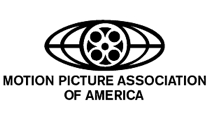This website uses cookies so that we can provide you with the best user experience possible. Cookie information is stored in your browser and performs functions such as recognising you when you return to our website and helping our team to understand which sections of the website you find most interesting and useful.
Business News Digital Industry People Legal Top Stories
US movie industry boss bigs up UK web-blocking
By Chris Cooke | Published on Monday 16 June 2014
The boss of the Motion Picture Association Of America, Chris Dodd, last week praised the use of web-blocks in the UK as a tactic in the long-term campaign against illegal file-sharing.
As much previously reported, although a three-strikes warning letter system was prioritised when parliament considered the content industries’ battle against online piracy in 2010, while said letter-sending is yet to begin, the movie industry convinced the courts that the existing Section 97A of the Copyright Act enabled the issuing of injunctions ordering internet service providers to block access to copyright infringing websites.
And since then the British movie and music industries have secured blocks against a string of file-sharing operations that are hard to target with litigation or prosecution directly because of jurisdiction issues. Similar web-blocks have been secured in a number of other European countries, while Italy has empowered its internet regulator to issue web-block orders itself.
But in the US web-blocking has been off the agenda ever since the tech sector staged a massive protest against the arguably badly constructed SOPA and PIPA legislative proposals in Congress, which would have enabled web-blocking Stateside. Instead something more like the three-strikes system preferred by the UK parliament has been the main initiative, albeit a voluntary and light-touch version negotiated by the net firms and content owners.
But Dodd is nevertheless a fan of web-blocking. According to Torrentfreak, he told the previously reported International IP Enforcement Summit in London last week: “Here in the United Kingdom, the balanced and proportionate use of civil procedures has made tremendous progress in tackling infringing websites”.
He went on: “To date, access to over 40 pirate sites focused on infringing copyright for commercial gain, have been blocked. In particular, Section 97A of the Copyright Act allowing courts to issue injunctions against service providers who know their services are being utilised for infringing purposes, has been one of the most effective tools anywhere in the world”.
Of course, web-blocks have not been without their controversy in Europe, especially if – as is now happening in Italy – it becomes possible to block sites without a court hearing first. Critics also point out how easy it is for file-sharers to circumvent the blocks with a simple Google search.
Though the music and movie industries are lobbying hard to try and persuade or force Google et al to start delisting websites from their search databases (as well any proxies linking through to them) as soon as a web-block injunction is issued. The search engines have so far resisted such calls for action, though they were forced to remove some unlicensed movie streaming sites from their French engines after a web-block injunction there included Google and co as defendants.
And Dodd sees the search engines as key in this domain in the US too, adding: “If we convince these search engines to join our efforts to shut down illegal sites, it would be a significant step forward in our ongoing efforts to protect creators”.






